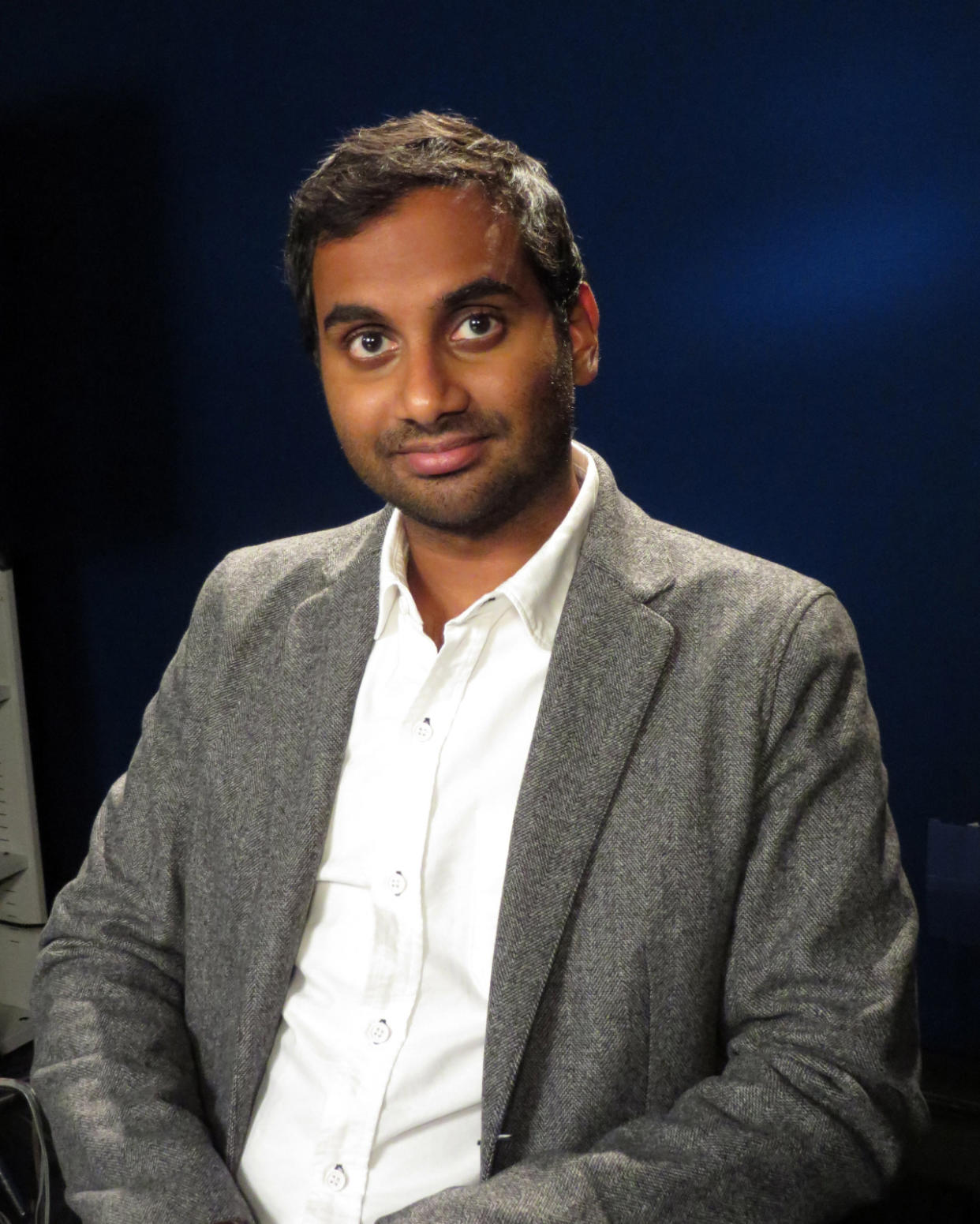Aziz Ansari Talks Race, Hollywood, and 'Short Circuit 2'

Actor and comedian Aziz Ansari (AP Photo/Frazier Moore)
In his new Netflix series, Master of None, Aziz Ansari re-creates a pivotal moment in his own understanding of Hollywood: In college, he looked up the first Indian lead actor he ever saw in a movie on IMDb, only to discover that Short Circuit 2’s Fisher Stevens was not Indian at all. The comedian felt shocked and betrayed to learn that Stevens wore brownface for his role as robotics expert Ben in both Short Circuit films, movies that had demonstrated to young Ansari that there was a place in Hollywood for someone who looked like him. In a thought-provoking essay for The New York Times, Ansari — a former Parks and Recreation star who has appeared in movies like Funny People and 30 Minutes or Less — shines a light on his personal experiences with race and Hollywood casting.
Watch a trailer for ‘Short Circuit 2′ (1988) starring Fisher Stevens and a robot.
Ansari, who was born in South Carolina to Indian parents, points out that the absence of Indian actors in mainstream movies hasn’t changed much since the Short Circuit films. In two relatively recent movies, The Social Network and The Martian, Indian characters were re-cast with actors of other ethnicities: half-Chinese actor Max Minghella played real-life Harvard student Divya Narendra in the former, while Chiwetel Ejiofor (a British actor of Nigerian decent) played a character in The Martian who was identified as Indian in the novel.
Interestingly, Ansari auditioned for The Social Network (“I was horrible,” he admits), and passed on an audition for a different role in The Martian. But most of his film prospects, he says, are frustratingly narrow. “Even though I’ve sold out Madison Square Garden as a standup comedian and have appeared in several films and a TV series, when my phone rings, the roles I’m offered are often defined by ethnicity and often require accents,” he writes.
When he found himself on the other side of the casting table for his Netflix series, Ansari realized that a scarcity of working minority actors might be contributing to the problem. “I had to cast an Asian actor for Master of None, and it was hard,” he admits. “When you cast a white person, you can get anything you want: ‘You need a white guy with red hair and one arm? Here’s six of ’em!’ But for an Asian character, there were startlingly fewer options, and with each of them, something was off. Some had the right look but didn’t have comedy chops. Others were too young or old. We even debated changing the character to an Asian woman, but a week before shooting began, Kelvin Yu, an actor from Los Angeles, sent in an audition over YouTube and got the part.”
Still, as Ansari notes, most Hollywood movies are still interested in telling the same two stories: Either, What’s gonna happen to this white guy? or, Are these white people gonna have sex with each other? “Even at a time when minorities account for almost 40 percent of the American population, when Hollywood wants an ‘everyman,’ what it really wants is a straight white guy,” he writes. “But a straight white guy is not every man. The ‘everyman’ is everybody.”
As for his childhood role model Fisher Stevens, Ansari reached out to him recently to discuss his stint as a faux-Indian in the Short Circuit films. Turns out the situation was more complicated than he’d assumed: Stevens was a young, struggling actor who was asked to “play Indian” after he’d already been cast. As a result, Stevens studied with a dialect coach, began taking yoga, read Indian novels, and even lived in India for a month. “I really wanted to be as real as possible,” he told Ansari. Nevertheless, Stevens realized in retrospect that a white actor never should have been cast in such a role — and, he told Ansari, he’d never take the part today.



